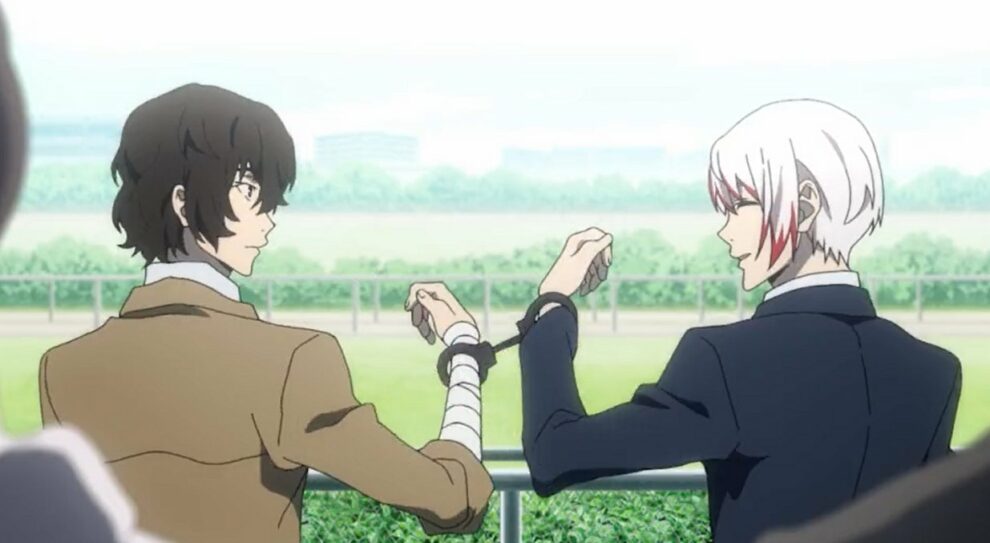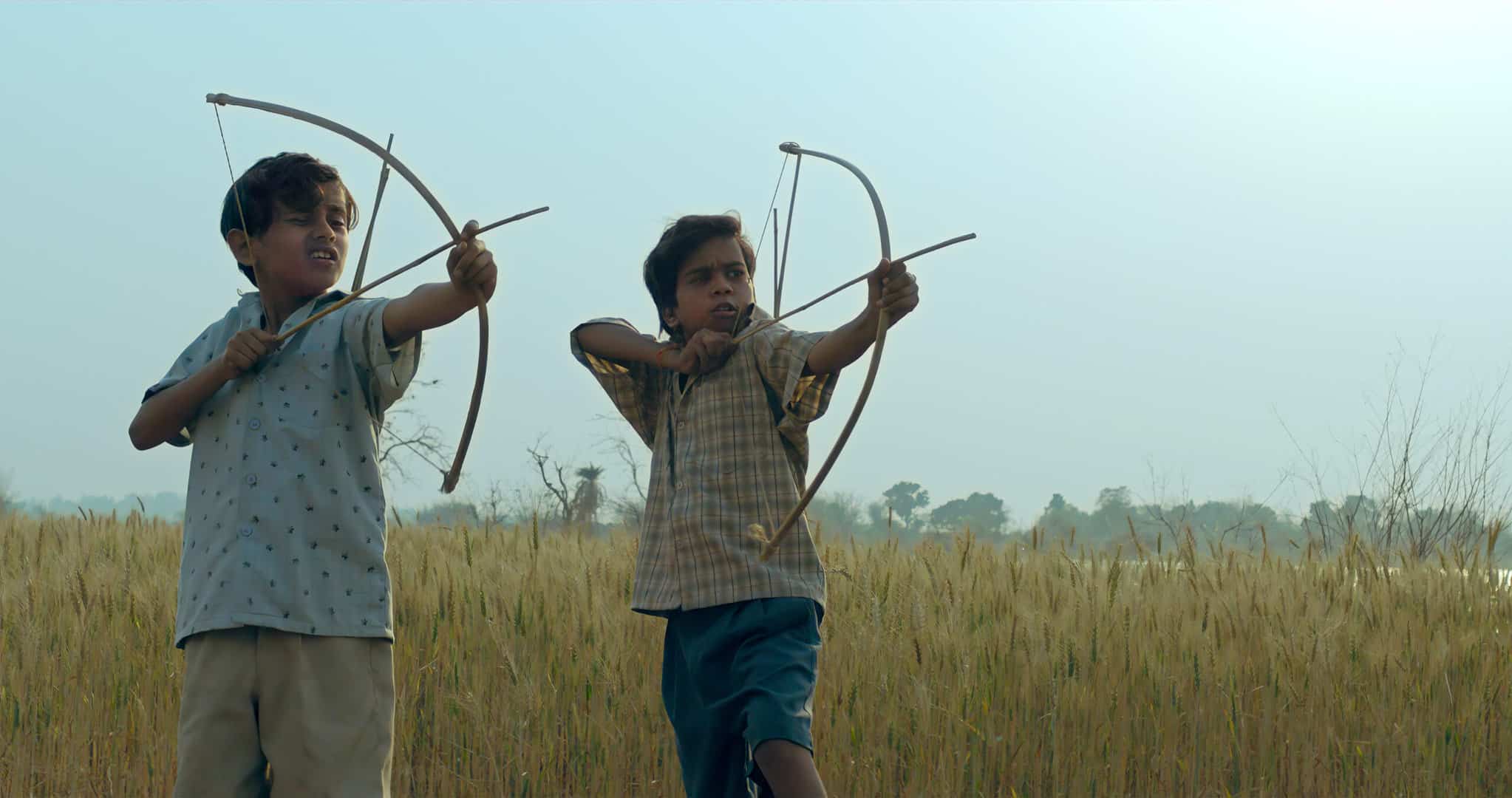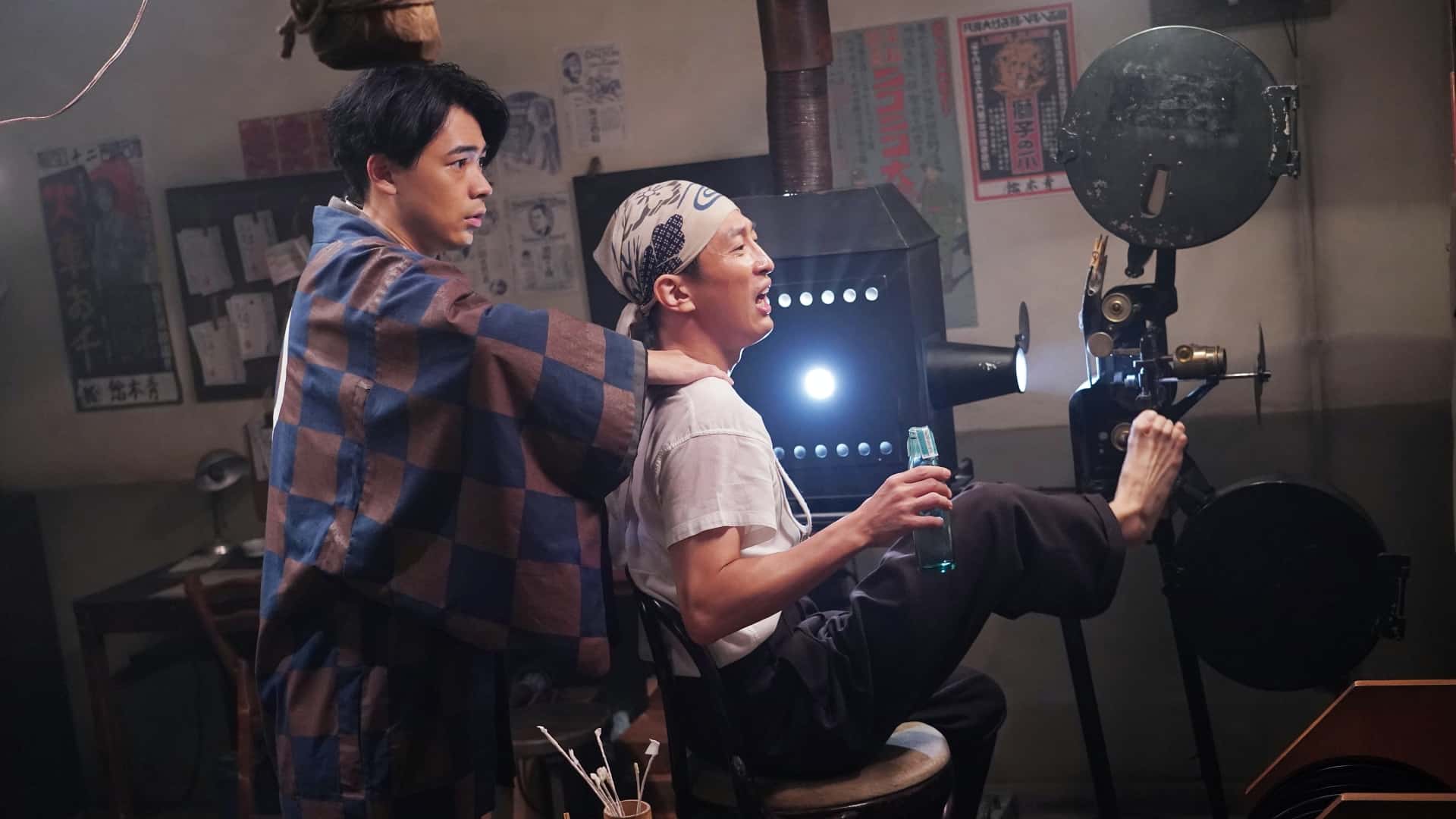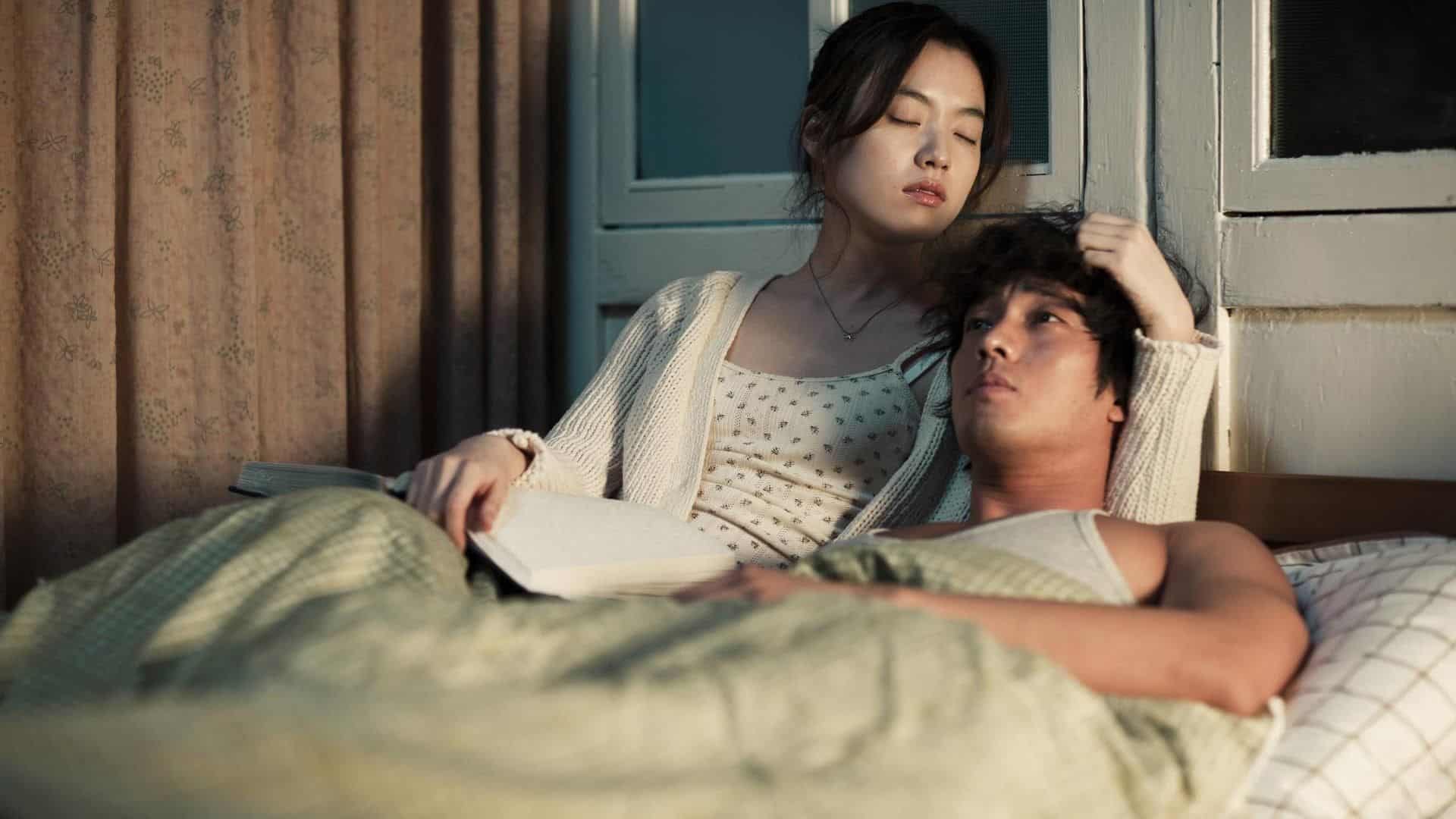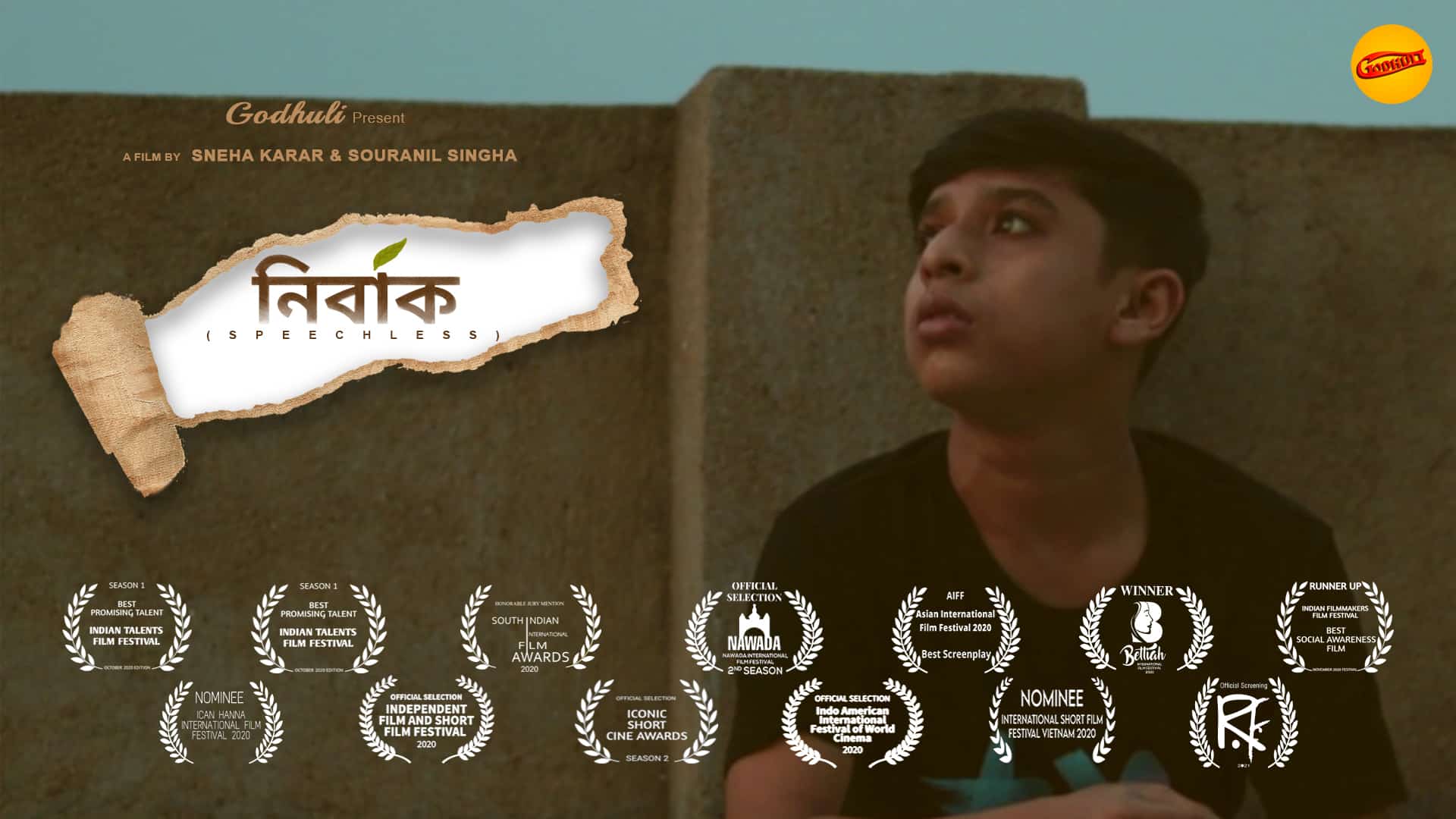To build upon the compelling first season, which introduced a formidable new adversary in the Guild and unveiled Osamu's surprising past as an executive member of the Port Mafia, the creators of “Bungo Stray Dogs” choose to rewind the narrative, delving into Osamu's backstory before progressing with the central storyline. The result is excellent once more, also because the second season takes a rather darker, more mature-oriented approach to the story.
Watch This Title on Crunchyroll
by clicking on the image below
In that fashion, the dark past of Osamu and particularly his relationship with Akutagawa, who looked up to him only to be kicked down again and again, and with Chuya, with the two forming a formidable duo despite the fact that the latter was always annoyed by Dazai. Additionally, the story delves into Osamu's encounters with Mori Ogai, the leader of the Port Mafia, whose actions ultimately drive him to join the Armed Detective Agency at the urging of a friend. Equally impressive is the fact that this arc is implemented excellently in the second, justifying the relationships that exist as much as a number of behaviors, thus continuing the great character analysis that appeared in the first season.
The second part deals with the war with the Guild, whose immense US power puts both the Port Mafia and the Armed Detective Agency under intense strain. This aspect gave the opportunity to add even more literary references through the new characters. Lovecraft, who transforms into something that reminds intently of Cthulhu, and Francis Scott Key Fitzgerald, whose ability, The Great Fitzgerald based on “The Great Gatsby” grants him an increase in strength at the expense of his money, are the two that stand the most out. Herman Melville with his Moby Dick power, Edgar Allan Poe who holds a grudge against Ranpo, and John Steinbeck conclude the American invasion, in one of the most interesting aspects of the series. Lastly, the new enemy that was hinted at in the last episode is Dostoyevski, so the whole concept will definitely continue.
As mentioned before, the series takes a rather darker turn, starting with the Dazai's past, continuing with the appearance of Q and her intensely sociopathic tendencies, and concluding with Akutagawa's obsession with Dazai that leads him to a constant antagonism with Atsushi. This aspect, apart from adding to the character analysis, adds a very appealing dramatic essence to the series that works exceptionally well in entertainment terms, while toning particularly down the pedantic comedy which, thankfully, is quite restricted in this season. Furthermore, the way Dazai's plans work, and the few moments that he seems genuinely shocked are also a contextual treat, with the change of focus from Atsushi to him benefitting the anime immensely. Lastly, another element that benefits the story is the fact that the leader of ADA finally comes to the fore, in a rather intriguing character that finally justifies his position.
In technical terms, Nobuhiro Arai continues his outstanding work, introducing characters who seem distinctly different from each other, with very few exceptions. Lovecraft and Q definitely stand out from the new ones, while the quality of the already known is steadily great. The background drawing has taken a step up, with the images of Yokohama, particularly during the sundown being impressive, as much as the ones during the explosion. The animation by Bones is also retained at the same level, with the battle on top of Moby Dick, the one with Lovecraft and the final one in Dazai's arc standing out, both due to the visuals and their dramatic context. Atsushi continues to borrow heavily from Naruto, but that is probably the only issue here, if one can call it that.
The second season of “Bungo Stray Dogs” is actually better than the first in terms of context and on the same level in terms of production, in an overall impressive work.


